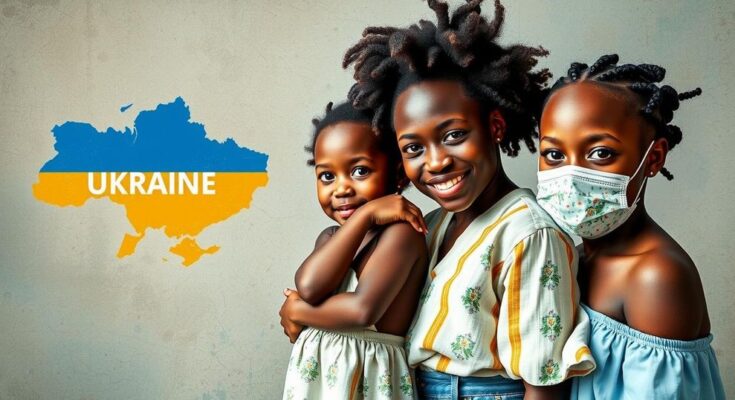The UN’s humanitarian chief, Tom Fletcher, visited Ukraine to show support amidst ongoing attacks, emphasizing community resilience and upcoming humanitarian plans. UN Secretary-General António Guterres memorialized Haiti earthquake victims while reaffirming support for ongoing recovery efforts. Additionally, $82 million has been allocated to improve healthcare access in Sudan, where conflict has severely impacted services, particularly for vulnerable children.
The United Nations’ top humanitarian official, Tom Fletcher, recently visited Ukraine to express solidarity with its citizens as they endure ongoing assaults from Russian military forces. In his remarks from Zaporizhzhya, Fletcher condemned the continuing airstrikes, which inflict significant civilian casualties. During his visit, he observed the destruction of essential facilities, including a missile-struck medical clinic. He noted the resilience of local communities, stating that schools have been constructed underground to protect children from the violence, ensuring education continues for approximately 1,000 students daily. Fletcher also visited displaced persons in Dnipro and will later announce humanitarian plans alongside UNHCR’s head in Kyiv. In 2022, UN aid reached over eight million people in Ukraine.
Additionally, UN Secretary-General António Guterres commemorated the victims of the catastrophic Haiti earthquake that occurred on January 12, 2010. This disaster, which claimed hundreds of thousands of lives, has left a lingering impact, affecting three million individuals and resulting in ongoing humanitarian challenges. Guterres paid special tribute to 102 UN personnel who perished in the quake, including the head of the Mission, Hédi Annabi. A ceremony took place in Port-au-Prince to honor the victims and reaffirm the UN’s commitment to supporting Haiti through its recovery efforts, highlighting the resilience of the Haitian people.
Lastly, the World Bank, WHO, and UNICEF have jointly committed $82 million to enhance healthcare access for over eight million residents in Sudan through the Sudan Health Assistance and Response in Emergencies (SHARE) initiative. With more than 70 percent of health facilities compromised due to conflict, and critical workers unpaid for months, the situation remains severe. SHARE aims to provide essential medicines, train health workers, and restore vaccination programs to curb disease outbreaks among vulnerable populations, particularly children under five at high risk for communicable diseases. WHO representative Dr. Shible Sahbani assured that this investment is crucial for building a more resilient health system.
Recent global events highlight the pressing humanitarian issues in various regions, particularly in Ukraine amid the conflict with Russia, the enduring aftermath of the Haiti earthquake, and the deteriorating health conditions in Sudan. These crises necessitate concerted international efforts and funding to alleviate suffering and restore basic services. Understanding the context of these situations reveals the urgency and significance of the actions being undertaken by international organizations like the UN and its partners in addressing these challenges effectively.
In summary, the ongoing humanitarian efforts in Ukraine, the remembrance of victims from the Haiti earthquake, and the funding provided for healthcare in Sudan represent the global community’s commitment to supporting those affected by crises. Notably, international leaders emphasize the importance of solidarity, resilience, and adequate response mechanisms to tackle the challenges faced by vulnerable populations. These initiatives exemplify the necessity of continued support and intervention in crisis-stricken areas to foster recovery and stability.
Original Source: news.un.org




